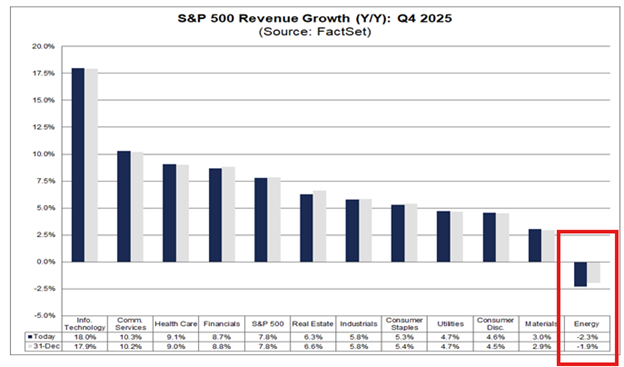Following their overwhelming defeat in the July 2024 general election, Britain’s Conservative Party recently elected Kemi Badenoch as its newest leader, meaning that she would become Prime Minister if the Conservatives win the next general election. It would be an exaggeration to describe Badenoch as a completely unknown political figure, but as a relatively early-career politician—she is 44 years old, was first elected to Parliament in 2017, and has never held any of the Great Offices of State—thus, she will be unfamiliar to most people who don’t follow British politics closely.
However, advocates of sound economics may have been hopeful to hear that she once described herself as an adherent of the “Austrian school” of economics, and lists Thomas Sowell amongst her personal heroes. Admittedly, such lip service to free market ideas was once commonplace as an empty gesture from mediocre, center-right American politicians, but given the seeming decline of interest in liberty amongst right-wingers over the past decade, especially in the UK, Badenoch’s comments still stand out. So who is Kemi Badenoch, how deep does her interest in “Austrian” economics go, and how hopeful should advocates of free markets feel about her assumption of the leadership of the Conservative Party?
Olukemi Olufunto “Kemi” Adegoke was born in south London in January 1980 to Nigerian parents who had traveled to the UK for her birth, which gave her birthright citizenship under the laws of the time. She was raised mostly in Nigeria, where she described herself as having had a “middle class” upbringing, although some have argued that her family were part of “the elite strata of Nigerian society”: her father was a doctor who ran his own hospital, and her mother was a professor at the University of Lagos. She moved to the UK for the first time at the age of 16, and describes herself as a first-generation immigrant, despite having been born in Britain.
She became interested in politics at university, where she felt an instinctive opposition to the “stupid Lefty white kids” she encountered there, and joined the Conservative Party in 2005 in reaction to the third consecutive general election victory of Tony Blair’s Labour Party. At around the same time, she began to develop an interest in free market economists including Thomas Sowell, whom she has repeatedly quoted and cited as one of her personal heroes, and the Austrian economist Friedrich von Hayek. As she later recalled in a 2017 interview:
So the bit of me, the amateur economist who was just getting going, reading Road to Serfdom and stuff, that’s what I was doing when I was 25, 26, 27. And that was what was laying the foundation in its own way. So I’m very much probably an Austrian school supply-sider, free-marketeer, more than anything.
Between 2005 and 2015, she became gradually more involved with Conservative politics, running unsuccessfully for Parliament in 2010, and for the London Assembly in 2012, while working in the financial sector. Interestingly, during her 2010 campaign she was asked, “What was the last issue that made you shout at the TV?”, to which she surprised the interviewer by answering, “I hate identity politics”; this was long before that issue was catapulted into the mainstream of political discourse by the rise of 2010s pop feminism, Black Lives Matter, and the 2016 US Presidential election, and before the term “woke” or even the antediluvian “social justice warrior” entered common use. In 2012 she married banker and Conservative councilor Hamish Badenoch and, by mid-decade, her political career had begun to take off: she became a member of the London Assembly in 2015, and became digital director of the prominent center-right magazine The Spectator in the same year. She apparently failed to make a good impression on her colleagues during this period, who described her as “rude,” “inefficient,” “aloof,” “lacking in substance” politically, and more focused on moving up in her political career than on fulfilling the duties of those jobs.
When she was finally elected to Parliament as Conservative MP for Saffron Walden in the 2017 general election, she occupied a number of minor government posts before putting herself forward in the July-September 2022 Conservative Party leadership election (the first of two such elections that year). She finished fourth in a field of eleven candidates, placing higher than a number of more prominent and experienced party figures. She was then appointed Secretary of State for International Trade in September 2022, Minister for Women and Equalities in October 2022, and Secretary of State for Business and Trade from February 2023. Given the expectation that MPs and especially members of the government vote with the party line, her voting record offers few insights into her own political or economic beliefs. She has voted against the majority of her own party only three times, including one occasion when she opposed making permanent certain temporary covid measures which had permitted women to self-administer early medical abortion pills at home without first having visited a doctor, despite the fact that Badenoch describes herself as “very, very pro-choice.”
Her tenures in the aforementioned government positions also provide few hints as to any economic principles she may have. Most notably, she angered members of her own party by altering a law which had promised to automatically repeal every EU law which had been retained after Brexit unless the government was able to review at least 4,000 such laws by the end of 2023. Badenoch lowered this threshold to 600 pieces of legislation to be reviewed, justifying this decision by saying, “It is not the bonfire of regulations—we are not arsonists. I’m certainly not an arsonist. I’m a Conservative.” Aside from this, and a minor scandal in which she was accused of trying to improve the appearance of government finances before the 2024 election by delaying compensation payments to postal workers who had been wrongly accused of stealing due to an IT error, her time in government was largely unremarkable.
Between her unsuccessful 2022 leadership bid and her recent ascent to the top of the electorally-humbled Conservative party, most news articles about her focused on her status as a rising star in on the British right, her prickly personality and public disputes with various figures within and outside her party, and her outspoken anti-woke stances on various culture war issues. Indeed, it seems probable that her admiration for Thomas Sowell could stem just as much from his trenchant opposition to affirmative action and other aspects of left-wing race ideology as from any of his economic views. However, even the anti-woke posture, which figured so heavily in Badenoch’s leadership campaign, only appears to go so deep: she recently criticized Prime Minister Kier Starmer for trying to “mansplain” to her.
Although Badenoch has frequently cited Sowell as one of her influences, she does not appear to have publicly commented on his views any more deeply than simply expressing her liking for his most famous book, Basic Economics, and quoting a number of his broad epigrams (“there are no solutions, only trade-offs,” “if you want to help people, tell them the truth,” etc.) Likewise, it’s hard to find any examples of Badenoch having commented on Hayek other than her acknowledgement that she has read his most famous book, The Road to Serfdom. Non-British readers who might be tempted to be impressed by Badenoch’s acknowledgement of Hayek should remember that Margaret Thatcher’s well-known admiration of Hayek elevated him to the status of “the one free market economist everybody has heard of” in Britain, in a similar way to how Milton Friedman’s frequent television appearances and association with the Reagan administration afforded him a quasi-celebrity status in the US.
While Badenoch’s acknowledgement of free market economists is certainly welcome—and sets her apart from the majority of pragmatic, non-ideological Conservative MPs—it still falls far short of the deep appreciation of Austrian economics evinced by prior British political figures, notably Steve Baker, who sadly lost his seat in Parliament in the 2024 general election, and whose personal website contains recommendations and detailed reviews of economic and political works by the likes of Hayek, Ludwig von Mises, Murray Rothbard, Jésus Huerta de Soto, Roger Garrison, and many others.
Indeed, it is difficult to shake the sense that Badenoch’s name-drops of Hayek, Sowell, and others exhibit a shallow “Conservatism 101” quality which combined with her anti-woke stances to increase her appeal in the recent leadership election, which commentators widely expected to favor a candidate on the right of the party. Alongside Hayek and Sowell, Badenoch has also drawn attention to her admiration of Winston Churchill, Margaret Thatcher, and the philosopher Roger Scruton; all decidedly-safe choices unlikely to ruffle any center-right feathers.
In this regard, it is difficult to disagree with an insightful recent article for The New Statesman by William Atkinson, appropriately entitled “Kemi Badenoch is no philosopher-queen.” Atkinson argues that Badenoch’s “Conservative Book Club” recommendations—and the older generation of Tory grandees who giddily took these as evidence that she is the next Thatcher—are unlikely to impress a younger generation of British right-wingers deeply frustrated by the lack of gains made after 14 years of centrist Conservative government. For these young conservatives who grew up in the information age and had already absorbed the ideas of Hayek and Sowell through books, podcasts, and YouTube videos in their teens, the shallow repetition of center-right truisms by Badenoch and her ilk seems hopelessly naive and insufficient in the face of the crises currently facing Britain and many other “Western” mixed economy states.
It might be tempting to see Badenoch’s acknowledgement of Hayek as a small victory for those who care about free markets—better than nothing—even if we acknowledge the seeming shallowness of her understanding and her apparent lack of difference in action from other contemporary British Conservatives. But if advocates of Austrian economics allow our ideas to continue being associated with the same moderate, center-right politicians who have consistently failed to increase the liberty and prosperity of their subjects, we should not be surprised when the younger generation begins to see free market ideas as just so many impotent, out-of-touch platitudes, nor when they begin to place their hopes in thinkers decidedly less liberal than Hayek.
Full story here Are you the author? Previous post See more for Next postTags: Featured,newsletter

























